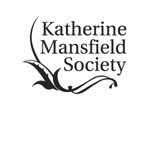29 October
29 October
29 October 1920
Villa Isola Bella Menton, France
I love this place more and more. One is conscious of it as I used to be conscious of New Zealand. I mean if I went for a walk there & lay down under a pine tree & looked up at the wispy clouds through the branches I came home plus the pine tree - don't you know? Here its just the same. I go for a walk & I watch the butterflies in the heliotrope & the young bees & some old bumble ones and all these things are added unto me. Why I don't feel like this in England heaven knows. But my light goes out, in England, or its a very small & miserable shiner. [Letter to J. M. Murry in Collected Letters, 28 October 1920]
My own Love
Yesterday I was so busy I didn't send you a personal letter. Only the reviews went off. Your Tuesday letter came, telling me you intended to visit Achner (wise boy) and that you were reading Mrs Asquith. I read certain parts of her book and felt - just that - there was something decent. At the same time the whole book seems to me indecent. Perhaps I feel more than anything that shes one of those people who have no past and no future. She's capable of her girlish pranks and follies today - in fact shes at the mercy of herself now & forever just as she was then. And thats bad. We only live by somehow absorbing the past -changing it - I mean really examining it & dividing what is important from what is not (for there is waste) & transforming it so that it becomes part of the life of the spirit and we are free of it. Its no longer our personal past; its just in the highest possible sense, our servant. I mean in that it is no longer our master. That is the wrong image. I used to think this process was fairly unconscious. Now I feel just the contrary. With Mrs A. this process (by which the artist and the "living being" lives) never takes place. She is forever driven. Shes of the school of Ottoline, isn't she.
"I am the Cup that Thirsteth for the Wine"
These half-people are very queer - very tragic, really. They are neither simple - nor are they artists. They are between the two & yet they have the desires (no, appetites) of both. I believe their secret whisper is: "If only I had found THE MAN I might have been anything" - - - [Letter to J. M. Murry in Collected Letters, 30 October 1920]

